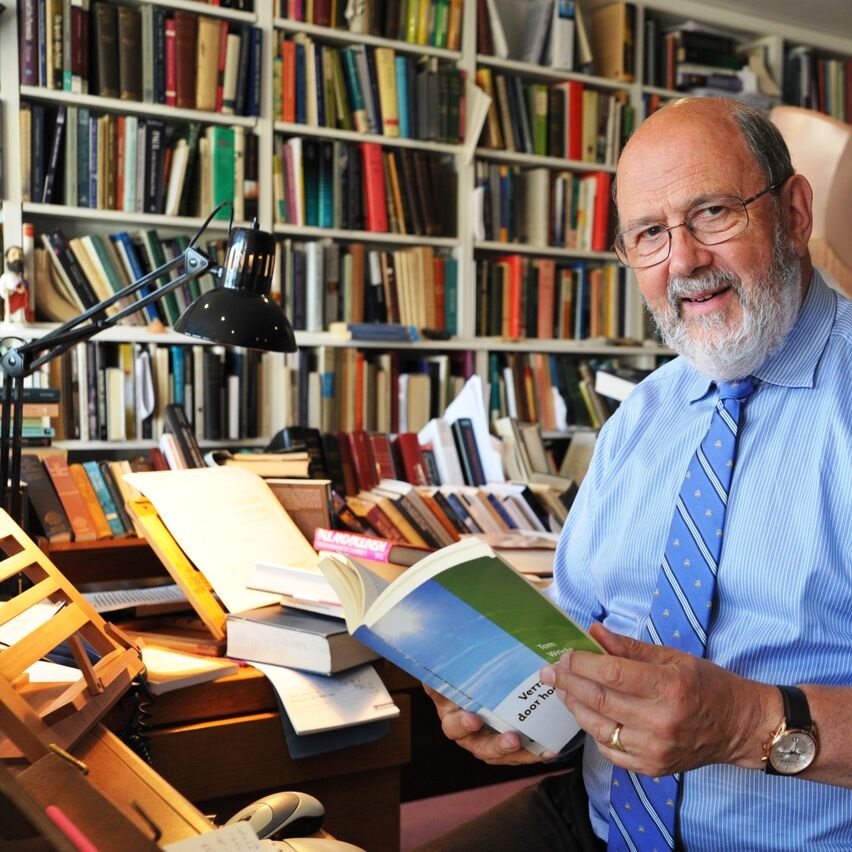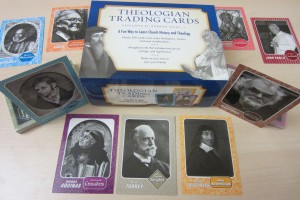NT Wright’s new book, How God Became King: The Forgotten Story of the Gospels, is due out this upcoming March. I was able to send Prof. Wright a few questions about this forthcoming book for the blog and he graciously agreed to answer them for The Two Cities. My questions are highlighted in bold:
1) Where does your new book, How God Became King, fit within your previous works?
In one sense it simply fills in some gaps, in anticipation of Volume 5 of the big series (don’t hold your breath). But in another sense it represents an urgent plea that we consider the ways in which, quite accidentally, the great Creeds have conditioned the way we read the gospels, skipping as they do from Jesus’ birth to his death and so not providing any hints as to what Jesus’ launching of God’s kingdom is actually all about. (This wasn’t the Creeds’ fault, I hasten to add – they were not designed as a teaching syllabus, though that of course is how they’ve often been used. So this gives a new ‘edge’ to the question of ‘what do the gospels say Jesus was up to’, and a new force to the question which really dominates JVG in particular, as to how the kingdom and cross go together. In a sense, too, HGBK then complements Simply Jesus: SJ is as it were telling the story from Jesus’ point of view, and HGBK tells the story from the point of view of ‘why did the evangelists tell it like this—and how come we’ve all ignored what they were eager to say?’ There is a quiet but steady polemic implicit in the book against those who say we must now be ‘creedal Christians’ and so don’t need to bother about the details of historical work on the NT. The canon is always prior to the creeds; though of course some people say ‘canonical Christians’ and mean ‘creedal Christians’. This book shows that such a position is simply not good enough.
2) One of the major refrains throughout your recent book, Simply Jesus, is ‘this is what it looks like when God becomes king.’ Considering the closeness of your wording with the title of your new book, can you address what the specific focus of your new book is and how it is meant to supplement or relate to Simply Jesus?
See previous answer! SJ is trying to mount a historical account of Jesus himself, whereas HGBK is saying ‘what story did the four gospels think they were telling?’ This raises the important question: most western Christians have read the gospels as being either about Jesus revealing that he was divine, or about him dying for our sins, or both. That is fine; the gospels really do tell us that; but actually (an image I use in the book) that is basically the key in which the music is set, not the tune which is being played. Christology and atonement, in the gospels, are in the service of the basic point, all through: this – Jesus as God’s son, and his death and resurrection – is ‘how God became king’. It is possible so to expound one or more true doctrines that they screen out other true and perhaps even more important doctrines. That’s the danger when ‘doctrine’ determines what we shall hear in a text, rather than letting the text speak for itself…
3) Are there more books planned as a series that Simply Jesus and How God Became King compose a part?
Not at the moment, no. Suggestions always welcome! Actually HGBK was really the second volume in a deal I had with Harper, the first vol being After You Believe (real title, as in UK, ‘Virtue Reborn’). HGBK is part of the ‘so what does it look like to be a Christian’ theme; SJ snuck in alongside because it seemed like a good idea at the time. There is a projected third volume in THAT series (‘what does it look like…’) but we are still discussing what that should be. Various possibilities and as I say suggestions are always welcome…
4) What is the main thing that you hope the Church will learn and do in response to some of the ideas raised in your new book?
I hope and pray that churches and individuals will begin again to read the gospels for all they’re worth, instead of muzzling them by suggesting – as some, absurdly, have done – that since ‘the gospel’ is what we find in Paul, the gospels themselves simply give us the ‘back story’ of how Jesus met his death. (This is of course Bultmann’s position, with the difference that conservatives who take the same line think the incidents actually happened – but they believe that, not because they believe in the launching of God’s kingdom but because they believe in the infallibility of scripture!) This then goes hand in glove with a dualist soteriology in which Jesus died to save our souls away from this world etc. The gospels tell a very different story, that of the way God in Jesus actually reclaimed his sovereignty over all the world. Most people since the Enlightenment have regarded this suggestion as absurd, since it seems obvious that God is NOT currently in charge of the world the way we would like him to be. But all four evangelists knew that sin and death, murder and mayhem, were continuing unchecked in their own day, and they went on telling the story of Jesus like this. If we learn to read the gospels this way, the church’s holistic mission will be undergirded and strengthened and directed in new ways.





1 Comment
Leave your reply.